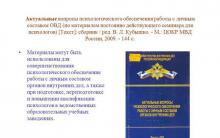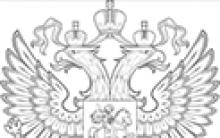: FESH
, RTS: FESHG
MICEX: FESH
Russia Moscow
Gilts Yuri Borisovich (President and Chairman of the Board of Transport Group FESCO LLC)
Transport
Intermodal, sea, rail transportation of containers and dry cargo, equipment, port and terminal services
▲ $1,028.7 million (2011)
▲ $348.9 million (2011)
▼ $29.1 million (2011)
5 thousand people (2010)
Container ship Fesco
Transport group FESCO is a Russian transport company providing sea, rail, road transport and stevedoring services at its own terminals in the largest ports of Russia and the CIS.
Represents a group of companies. The base company of the group is Far Eastern Shipping Company. FESCO owns its own fleet, trains, port, sea and land terminal complexes, as well as a network of offices in many countries around the world. The management company is FESCO Transport Group LLC. The group's headquarters are located in Moscow.
Owners and management
Owners of the company: 55.8% - Sergei Generalov's Industrial Investors group, 7.2% - East Capital, 3.8% - EBRD, 13.0% - treasury shares, 20.2% are traded on the free market. The company's market capitalization according to the RTS exchange as of November 1, 2012 amounted to $944.4 million.
Activity
FESCO in numbers
The volume of sea line transportation of the FESCO group for the 9 months of 2011 amounted to 282,259 TEU (foreign trade) and 45,830 TEU (cabotage), compared to 220,249 TEU and 49,227 TEU for the 9 months of 2010, respectively. Rail transportation of container cargo in January-September 2011 amounted to 185,788 TEU. The forwarding volume reached 33,526 TEU.
Terminal services
FESCO operates modern terminal complexes located in the Pacific Basin, as well as land terminals in the Moscow region and Khabarovsk. Vladivostok sea trade port(VMTP) is located on the northwestern coast of Vladivostok. 16 ship lines call at VMTP, including container, cargo-passenger and ro-ro cargo lines. Cargo transshipment is carried out in all directions and types of navigation: import, export, cabotage. The main directions of cargo transshipment: South Korea, Japan, China and Taiwan, Thailand, Vietnam and other countries, mainly in the Asia-Pacific region. The service infrastructure of the port includes stevedoring, agency, forwarding, towing, surveyor, tally and other companies.
Khabarovsk warehouse complex "Stroyopttorg"- with a total area of 9.2 hectares, located within Khabarovsk near the federal highway M60 Vladivostok-Khabarovsk. It is planned to create a universal terminal on the basis of the warehouse complex, which will provide a range of services in the field of rail transportation. Since December 2009, Stroyopttorg received permission to receive and dispatch containers from its own access route, which will give the company the opportunity to attract additional volumes of container cargo handling in the amount of 25 thousand TEU per year.
Group companies
Today, the FESCO Transport Group unites a number of leading companies in the industry, including:
Vladivostok container terminal.
It seems that a war has begun over the inheritance of the brothers Ziyavudin and Magomed Magomedov, who control the Summa group and are currently under investigation. The first move was made by Promselkhozbank, controlled by the managers of Vneshprombank and having close ties with Transneft, the “sworn friend” of the Dagestanis. At stake is the Far Eastern Shipping Company - the key to managing FESCO, Russia's largest transport corporation.
Drone attack
Industrial Agricultural Bank(Promselkhozbank) went on the attack by filing a bankruptcy petition with the Moscow Arbitration Court Far Eastern Shipping Company(FESCO) - the parent company of the FESCO transport group. The bank saw signs of insolvency of FESCO due to non-payment of coupons on bonds that are under the legal management of Promselkhozbank.
The Far Eastern Shipping Company acknowledges the existence of unsettled debts and promises to reach an agreement with creditors in the process of peaceful negotiations. But specifically in the case of Promselkhozbank, they categorically assert that the credit institution does not have debt securities of the shipping company, and it does not have any rights for its applications to the court.
Most likely, it’s a matter of nuances in the interpretation of the concept “in legal management.” Simply put, the bank could simply be given these bonds in order to use the credit institution as a battering ram against FESCO. Moreover, Promselkhozbank, apparently, was originally intended to solve special problems. Created in 1990 on the basis of the Engels branch of Zhilsotsbank, it received a somewhat strange name for a credit institution - Engels Bank. In 2010, the bank moved to Moscow, changing its name to its current one, reminiscent of Vneshprombank. And this similarity is hardly accidental - the managers of Vneshprombank controlled Promselkhozbank.
After the collapse of Vneshprom, the business of Promselkhoz also went downhill. The client base has decreased, capital has decreased, and the loan portfolio has also decreased. In other words, the bank simply fades away. Perhaps now they have decided to finally use it to attack the “big beast”.
Immediately after the loud start of Promselkhoz, a management company from St. Petersburg filed a bankruptcy claim with the same court for FESMP “ Arsagera" She accused the shipping company of "lack of initiative necessary to pay off the debt." Representatives of FESCO call the lawsuit provocative, since they consider the amount of outstanding debt claimed by Arsagera (2.7 million rubles) to be incomparable with the amount of the company’s net assets (as of December 31, 2017, 17.9 billion rubles).
All this is true. At the same time, it is difficult to say for certain who is behind the Arsagera lawsuit. But Arsagera is not only known as a lender to large enterprises; much more often heard is her ability to turn such debts into legal claims and high-profile public scandals. This, apparently, is its strategic task in the FESCO matter. The shipping company understands this very well, as it asks clients and partners in advance “not to react to provocations.” Which will obviously soon follow.
FESCO discord
Through DVMP it is easy to access management FESCO- the largest Russian transport corporation. The stakes are high, and applicants can disguise themselves in the most unexpected ways. Therefore, the simultaneous appeal of two “victims” to the court at once can be either a coordinated action or a military operation of competing organizations.
FESCO became a convenient takeover target after the brothers were jailed Ziyavudin And Magomed Magomedovs, controlling the Summa group, which is the main shareholder of FESCO. Dagestan entrepreneurs acquired (indirectly) 49.99% of the corporation's shares. They also brought with them a group of other shareholders - structures Mark Gabera(23.75% of shares of JSC "FESCO", as well as the TPG fund - 17.5% of shares)
This deal took place after the 2012 presidential elections, as a result of which Dmitry Medvedev, who was close and partial to the Dagestanis, took the post of head of government. It also became a kind of crowning achievement in the history of Summa’s long strategic partnership with the state and the state-controlled Transneft company.
Summa and Transneft began cooperation in 2010, gaining control of the Novorossiysk Commercial Sea Port (NCSP Transneft). As a result, in 2011, Ziyavudin Magomedov entered the Forbes list with a fortune of $750 million, and three years later he became a dollar billionaire.
It is not surprising that after the 2012 presidential elections, the Magomedovs’ political ties began to disintegrate. More precisely, they descended to the government level. At the same time, it turned out that buying a business and receiving contracts does not guarantee its successful operation. Instead of a success story, there followed a story of failures, the list of which was very impressive and included Olympic construction projects, the construction of the Kyzyl-Kuragino railway, the Vostochny-Nakhodka transport hub facilities, Novorossiysk railway parks, and the Kaliningrad Khrabrovo airport.
Against this pessimistic background, cooperation with Transneft looked almost idyllic, although it was accompanied by corporate conflicts. The idyll ended in 2018, when the country experienced a massive “landing” of security forces in the Caucasus. The result of the security operations is known - these are the covered “common funds” (according to informed people, we were talking about incredible amounts of cash) and the imprisonment of the political elite of Dagestan.
By this time, FESCO's business was already on its last legs. Since 2016, the company has not paid on ruble bonds and Eurobonds, and in May 2017, Magomedov even wrote a letter to the president asking for help.
Now he will have to write other letters. Taking advantage of the moment, the security forces decided to tighten up the case of the murder of the Deputy Chairman of the Central Bank Andrey Kozlov. Russian banker convicted in this case Alexey Frenkel was a “Fuchs” in the banks controlled by the Magomedov family.
Who will become the master of Eurasia
When players of this level are suspected of criminal offenses, the fate of Eurasia can be said to be at stake. FESCO, in addition to the port, is one of the leaders in the transportation of container cargo along land corridors. It has a chance to become the center of transit cargo turnover between Russia, Europe and China. It remains to understand who this owner of Eurasia will be. The most likely contender for the Magomedovs’ business is their faithful partner, Transneft, which has already shown its interest in Summa’s share in NCSP.
Now we return to the topic of Promselkhozbank.
Transneft was an important client and strategic partner of Vneshprombank. At the time of the bankruptcy of the latter, about 14 billion rubles remained in its accounts.
Hardly anyone has any doubts that company representatives have the ability to influence credit institutions that were part of Vneshprombank’s orbit. To participate in the future (and, it seems, inevitable) bankruptcy of FESCO means getting a chance to become its owner. This simple rule was taught to current generations of entrepreneurs at the turn of the 1990s. And whoever is first in these ranks will receive a serious head start.
FESCO Transport Group is a Russian transport company providing sea, rail, road transport and stevedoring services at its own terminals in the largest ports of Russia and the CIS.
Represents a group of companies. The base company of the group is Far Eastern Shipping Company. FESCO owns its own fleet, trains, port, sea and land terminal complexes, as well as a network of offices in many countries around the world. The management company is FESCO Transport Group LLC. The group's headquarters are located in Moscow.
FESCO Transport Group is committed to the rapid implementation of the most efficient transport technologies, offering high-quality 3PL provider services necessary for the movement of goods throughout the supply chain.
A special place in the activities of the FESCO Group is occupied by the implementation of social projects aimed at caring for people and the environment. Socially responsible business is the basis for the long-term sustainability of the Group’s development.
Activity
The FESCO transport group today is a private integrated company that provides clients with a wide range of logistics solutions, combining the capabilities of its own sea, rail and road transport, stevedoring services at its own terminals in the largest ports of Russia and the CIS, and an extensive network of offices around the world.
The Group's production assets include modern, fast, reliable and safe vessels of various types, its own diversified fleet of rolling stock, traction railway stock, tractor units, a fleet of containers and special equipment, sea and land terminal complexes, allowing to quickly and efficiently combine various types of transport into single
K:Companies founded in 1880
Transport group FESCO is a Russian transport company providing sea, rail, road transport and stevedoring services at its own terminals in the largest ports of Russia and the CIS.
Represents a group of companies. The parent company of the group is Far Eastern Shipping Company. FESCO owns its own fleet, trains, port, sea and land terminal complexes, as well as a network of offices in many countries around the world. The group's headquarters are located in Moscow.
Owners and management
The shareholder structure of the FESCO group is as follows: Ziyavudin Magomedov, controlling shareholder of the Summa group - 32.5%, companies controlled by Mark Garber - 23.8%, TPG - 17.4%, other shareholders/free float - 26, 3%.
The Chairman of the Board of Directors of the company is Ziyavudin Magomedov, the President and Chairman of the Board is Aleksandrs Isurins.
Activity
FESCO in numbers
The volume of transportation on the sea lines of the FESCO group at the end of 2015 amounted to 309.1 thousand TEU (international sea lines) and 59.9 thousand TEU (sea shipping). Container transshipment in the port division in 2015 reached 345.0 thousand TEU, the volume of railway container transportation - 278.8 thousand TEU.
The Group's consolidated revenue in 2015 amounted to USD 688 million (RUB 41.6 billion).
Sea and rail transportation
Most of FESCO's operations are concentrated in the Russian Far East. The company transports cargo on its own foreign trade and coastal shipping lines, and carries out rail transportation from the Far East to Russia, the CIS, Central Asian countries and Europe. The FESCO Group owns Vladivostok Sea Trade Port OJSC with an annual throughput capacity of 3.9 million tons of general cargo and petroleum products, 150 thousand units of cars and wheeled vehicles and over 600 thousand TEU of container cargo. FESCO carries out transportation under the brands Transgarant (100% subsidiary of FESCO) and Russian Troika (50% joint venture with JSC Russian Railways). The group owns a fleet consisting of vessels of various types, which are used primarily by the FESCO linear logistics division.
Terminal services
FESCO operates terminal complexes located in the Pacific Basin, as well as land terminals in the Moscow region and Khabarovsk. Vladivostok sea trade port(VMTP) is located on the northwestern coast of Vladivostok. 16 lines of ships call at VMTP, including container, cargo-passenger and ro-ro cargo lines. Cargo transshipment is carried out in all directions and types of navigation: import, export, cabotage. The main directions of cargo transshipment: South Korea, Japan, China.
Khabarovsk warehouse complex "Stroyopttorg" is the only transport company in the Khabarovsk Territory that provides a full range of warehouse logistics, forwarding and terminal processing services. The complex is located within the city in close proximity to the federal highway Vladivostok - Khabarovsk, adjacent to the Krasnaya Rechka railway station of the Far Eastern Railway. The total area of the terminal is 9.3 hectares, throughput capacity is 60 thousand TEU per year (container site area is 1.1 hectares). The terminal's line of services includes sending and receiving cargo within the framework of regular container services FESCO Amur Shuttle and FESCO Amur Shuttle westbound, as well as wagon shipments throughout Russia.
In addition, FESCO owns terminals in Novosibirsk and Tomsk.
Group companies
Far Eastern Shipping Company- founded in 1880. Owns the maritime fleet of the transport group, carries out commercial management and operation of the universal, bulk and specialized fleet, provides technical management of the fleet and navigation of the vessels of the FESCO Transport Group
Vladivostok sea trade port- provides services for transshipment of container, general, bulk, ro-ro cargo. Annual throughput capacity is 3.9 million tons of general cargo and petroleum products, 150 thousand units of vehicles and wheeled vehicles and over 600 thousand TEU of container cargo. The volume of container transshipment at VMTP in 2014 amounted to 513 thousand TEU. This is a record figure among stevedoring companies in the Russian Far East; VMTP is the leader in container transshipment in the region with a market share of 32% (in 2014).
FESCO Integrated Transport- a single logistics operator within the FESCO Transport Group, offering intermodal schemes and comprehensive logistics solutions for the delivery of goods by sea, rail and road transport throughout the CIS countries, Asia and Europe
Transgarant- a company providing services for the transportation of industrial goods by rail
Russian Troika- a company created on a parity basis with Russian Railways, providing transportation of container cargo by block trains
FESCO ESF Ltd.- a joint venture with ESF Euroservices, providing feeder transportation services for containers in the Baltic region.
Dalreftrans- operator of refrigerated container transportation in Russia and the CIS, providing freight forwarding services for sensitive cargo in refrigerated containers using sea, rail and road transport. Carries out transportation of seafood from the regions of the Far East to Siberia and Central Russia, as well as food products, vegetables, fruits from Central Russia to the Far East. The second major activity of the company is the transportation of meat and meat products, fish from the Baltic states to Kazakhstan and Central Asia, from where, in turn, vegetables and fruits are transported to Russia.
Write a review about the article "FESCO Transport Group"
Notes
Links
An excerpt characterizing the FESCO Transport Group
- The enemy is still far away, Your Excellency. By disposition...- Disposition! - Kutuzov cried out biliously, - who told you this?... If you please, do as you are ordered.
- I’m listening s.
“Mon cher,” Nesvitsky said in a whisper to Prince Andrei, “le vieux est d”une humeur de chien. [My dear, our old man is very out of sorts.]
An Austrian officer with a green plume on his hat and a white uniform galloped up to Kutuzov and asked on behalf of the emperor: has the fourth column set out?
Kutuzov, without answering him, turned away, and his gaze accidentally fell on Prince Andrei, who was standing next to him. Seeing Bolkonsky, Kutuzov softened the angry and caustic expression of his gaze, as if realizing that his adjutant was not to blame for what was happening. And, without answering the Austrian adjutant, he turned to Bolkonsky:
– Allez voir, mon cher, si la troisieme division a depasse le village. Dites lui de s"arreter et d"attendre mes ordres. [Go, my dear, see if the third division has passed through the village. Tell her to stop and wait for my order.]
As soon as Prince Andrei drove off, he stopped him.
“Et demandez lui, si les tirailleurs sont postes,” he added. – Ce qu"ils font, ce qu"ils font! [And ask if the arrows are posted. “What are they doing, what are they doing!],” he said to himself, still without answering the Austrian.
Prince Andrei galloped off to carry out the order.
Having overtaken all the battalions in front, he stopped the 3rd division and became convinced that, indeed, there was no rifle chain ahead of our columns. The regimental commander of the regiment in front was very surprised by the order given to him from the commander-in-chief to scatter the riflemen. The regimental commander stood here in full confidence that there were still troops ahead of him, and that the enemy could not be closer than 10 miles. Indeed, nothing was visible ahead except a deserted area, sloping forward and covered with thick fog. Having ordered on behalf of the commander-in-chief to fulfill what had been missed, Prince Andrei galloped back. Kutuzov stood still in the same place and, senilely slumped in the saddle with his corpulent body, yawned heavily, closing his eyes. The troops no longer moved, but stood at gunpoint.
“Okay, okay,” he said to Prince Andrei and turned to the general, who, with a watch in his hands, said that it was time to move, since all the columns from the left flank had already descended.
“We’ll still have time, Your Excellency,” Kutuzov said through a yawn. - We'll make it! - he repeated.
At this time, behind Kutuzov, the sounds of regiments greeting each other were heard in the distance, and these voices began to quickly approach along the entire length of the stretched line of advancing Russian columns. It was clear that the one they were greeting was traveling quickly. When the soldiers of the regiment in front of which Kutuzov stood shouted, he drove a little to the side and looked back with a wince. On the road from Pratzen, a squadron of multi-colored horsemen galloped along. Two of them galloped side by side ahead of the others. One was in a black uniform with a white plume on a red anglicized horse, the other in a white uniform on a black horse. These were two emperors with their retinue. Kutuzov, with the affectation of a soldier at the front, commanded the troops standing at attention and, saluting, drove up to the emperor. His whole figure and manner suddenly changed. He took on the appearance of a commanding, unreasoning person. With an affectation of respect that obviously struck Emperor Alexander unpleasantly, he rode up and saluted him.
An unpleasant impression, just like the remnants of fog in a clear sky, ran across the emperor’s young and happy face and disappeared. He was, after ill health, somewhat thinner that day than on the Olmut field, where Bolkonsky saw him for the first time abroad; but the same charming combination of majesty and meekness was in his beautiful, gray eyes, and on his thin lips, the same possibility of varied expressions and the prevailing expression of complacent, innocent youth.
At the Olmut show he was more majestic, here he was more cheerful and energetic. He became somewhat flushed after galloping these three miles, and, stopping his horse, sighed with repose and looked back at the faces of his retinue, just as young and as animated as his. Chartorizhsky and Novosiltsev, and Prince Bolkonsky, and Stroganov, and others, all richly dressed, cheerful, young people, on beautiful, well-groomed, fresh horses, talking and smiling, stopped behind the sovereign. Emperor Franz, a ruddy, long-faced young man, sat extremely straight on a beautiful black stallion and looked around him with concern and leisurely. He called one of his white adjutants and asked something. “That’s right, what time did they leave,” thought Prince Andrei, observing his old acquaintance, with a smile that he could not contain, remembering his audience. In the retinue of the emperors there were selected young orderlies, Russian and Austrian, guards and army regiments. Between them, beautiful spare royal horses were led by riders in embroidered blankets.
It was as if, through the open window, the smell of fresh field air suddenly came into the stuffy room, so the gloomy Kutuzov headquarters smelled of youth, energy and confidence in success from these brilliant young people who had galloped up.
- Why don’t you start, Mikhail Larionovich? - Emperor Alexander hastily turned to Kutuzov, at the same time looking courteously at Emperor Franz.
“I’m waiting, Your Majesty,” answered Kutuzov, leaning forward respectfully.
The Emperor lowered his ear, frowning slightly to indicate that he had not heard.
“I’m waiting, your Majesty,” Kutuzov repeated (Prince Andrei noticed that Kutuzov’s upper lip trembled unnaturally while he said this, “I’m waiting”). “Not all the columns have assembled yet, Your Majesty.”
The Emperor heard, but apparently did not like this answer; he shrugged his stooped shoulders and glanced at Novosiltsev, who stood nearby, as if with this glance he was complaining about Kutuzov.
“After all, we are not in Tsaritsyn Meadow, Mikhail Larionovich, where the parade does not begin until all the regiments arrive,” said the sovereign, again looking into the eyes of Emperor Franz, as if inviting him, if not to take part, then to listen to what he speaks; but Emperor Franz, continuing to look around, did not listen.
“That’s why I’m not starting, sir,” Kutuzov said in a sonorous voice, as if warning against the possibility of not being heard, and something trembled in his face once again. “That’s why I’m not starting, sir, because we’re not at the parade or in Tsarina’s meadow,” he said clearly and distinctly.
In the sovereign's retinue, all the faces, instantly exchanging glances at each other, expressed murmur and reproach. “No matter how old he is, he should not, in no way should speak like that,” these persons expressed.











Direct marketing - what is it in examples
Where do poisonous potatoes come from? What to do with poisonous potatoes in Minecraft
He does not allow himself and others to be bullied.
Remuneration model: grades 11 grade in Sberbank
Russian folk tale “Baba Yaga The Tale of Baba Yaga read Russian